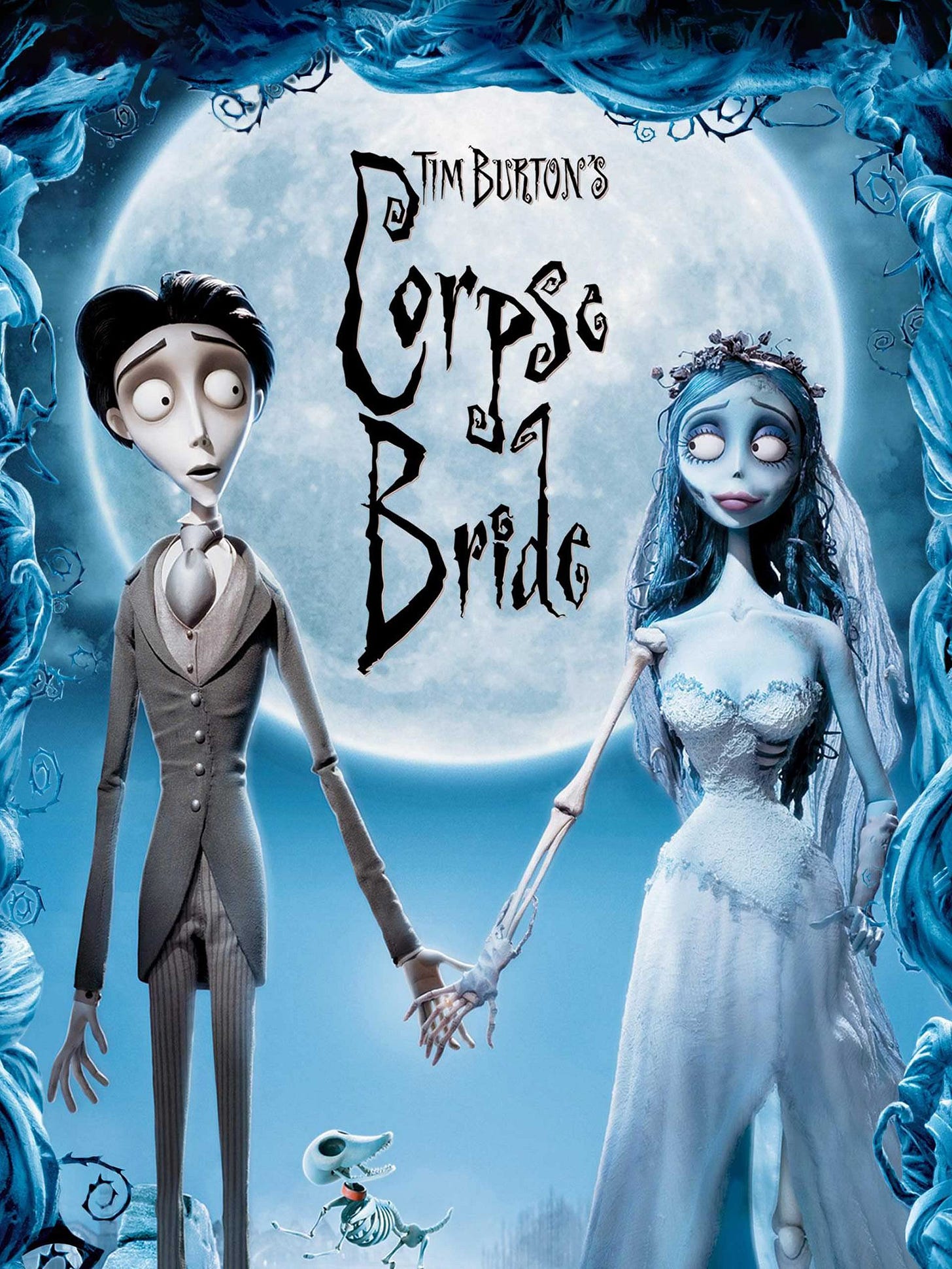Tim Burton’s “The Corpse Bride:” Love Till Death do We Part
When the Healthiest Relationship is Already Dead
Watching The Corpse Bride (2005) is something of an annual tradition for me, be it the music, the stop-motion animation, or the characters that call to me year after year.
Be it Valentine’s, Halloween, or heck, even the middle of summer. I’ll throw me some Corpse Bride on and work while it plays in the background.
I’m also a massive simp, and The Corpse Bride is to me what Nightmare Before Christmas is to other people.
Based on a 19th-century Jewish folktale, this story has a good smattering of love, dead people, and awkward romantic protagonists. Honestly, it has the makings of a solid rom-com, but with Tim Burton at the helm it hits the rom hard and dark thematic elements even harder.
Yet soft. Like a butterfly’s kiss.
It makes sense if you watch the movie.
Which I recommend you do, whatever season it is and whatever holiday you have to enjoy. I feel like this is a sorely under appreciated movie for the amazing synergy the voice actors give to the character puppets and the music gives to the story.
We have awkward yet lovable but absolutely timid Victor Van Dort (Johnny Depp) paired with the confident and impulsive Emily AKA the one and only Corpse Bride (Helena Bonham Carter).
Short story shorter: Victor practices his vows in a barren forest and places his wedding ring on a branch. Which happens to be Emily’s skeletal hand poking out of the ground. And then she accepts his proposal.
Dark yet charming and wrought with emotion, we follow Victor as he becomes more confident in himself and as Emily finally finds the peace and happiness she deserves.
What is love?
Familial
We pick up habits from the people around us. We copy the way our parents handle arguments, the way our peers flirt with one another, the way our coworkers get results. When your friends smoke pot, you give it a try, too. When your wife has a habit of double-checking that the door is locked before going to bed, you pick it up as well.
—Atomic Habits, James Clear p. 99-100
It’s an absolute wonder Victor and Victoria (Emily Watson) could find love and happiness in a relationship. Their parents are crude and cruel. Materialistic and self-absorbed in both of the in-laws.
They have had the worst representation of what a family should be and how parents should treat each other, yet in their upbringing they find a common thread and a touch of romanticism in both.
They’re sheltered and emotionally stunted, unable to speak without stuttering and wholly controlled by the whims and the fancies of their parents’ needs.
Yet here they are, forced together by circumstance and parental meddling. Kindred spirits that do not burn brightly together, but instead warm each other softly with a tenderness in contrast to their upbringing.
Do their parents love them?
Probably not. There isn’t even much love between each of the parents, more of a transactional agreement to fend off the world together.
And yet.
And yet in spite of seeing how their parents work together, Victor and Victoria manage to break out of that cycle (though initiated by their parents) by actually falling in love.
Platonic & Romantic

This is a love story. As cadaver strewn as it is, it’s a love story with a happy ending and multiple relationships we can’t help but root for.
Emily and Victor.
Victor and Victoria.
Lord Barkis (Richard E. Grant) and…other. [Though in all honesty Barkis can choke on an old boot for all I care]
There is the soft love that we see budding between Victor and Victoria. The impulsive and fleeting brouhaha with Victor and Emily, which I would argue is more of on the platonic side. Emily challenges Victor, she pushes him to be a better man and while that is always wonderful in a partner, she is kind of dead.
So. There’s that. Besides that little pickle, I absolutely ship them.
Victor also becomes a man, not in the traditional coital sense, but in the idea of taking responsibility for his actions and standing up for what he believes in.
There is so much character growth that is intertwined between the characters that it makes it hard to hate any one character.
Except for Barkis.
Fuck Barkis.
We watch feelings develop and though not all of it is romantic, we see respect blossom. Confidence sewn into Victor’s suit, melancholy and anger draped on Victoria’s wedding veil, peace released from Emily’s bodice.
Subtle emotion curling a a character’s shoulders and thin, finnicky limbs to convey every sense of not-belonging.
This cast is every bit of being young and in love and not knowing what to do with it or how to act.
It’s kind of wholesome.
Besides there being an entire dance sequence in the underworld about a murder.
Very wholesome.






